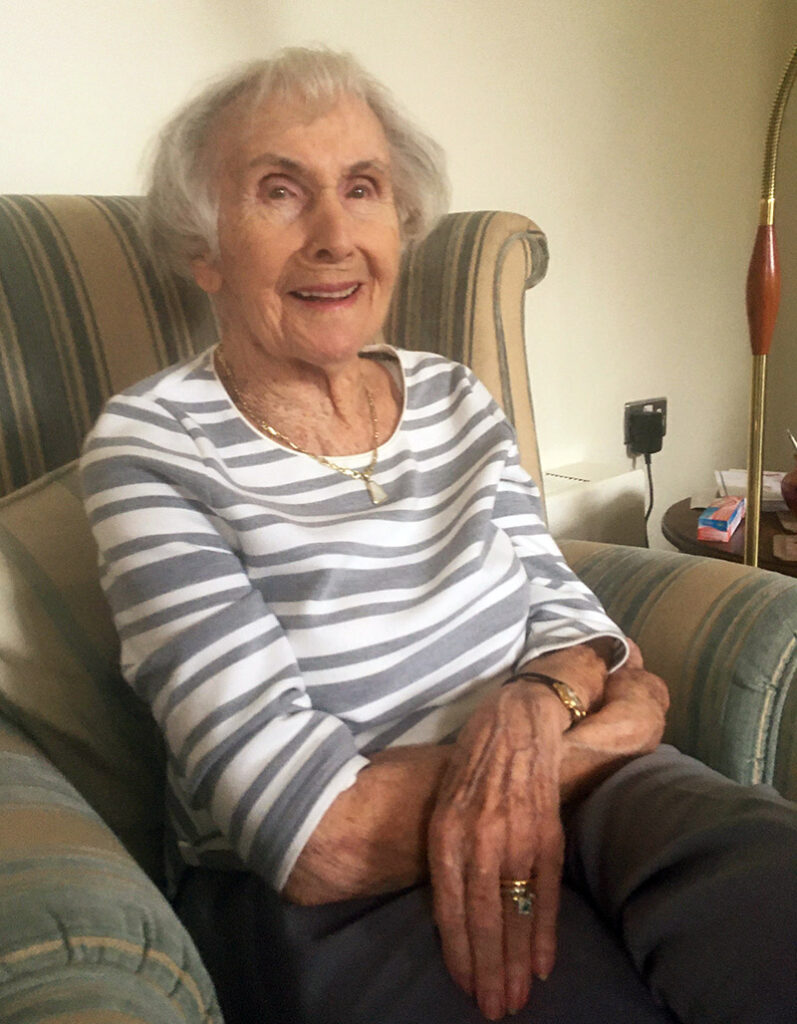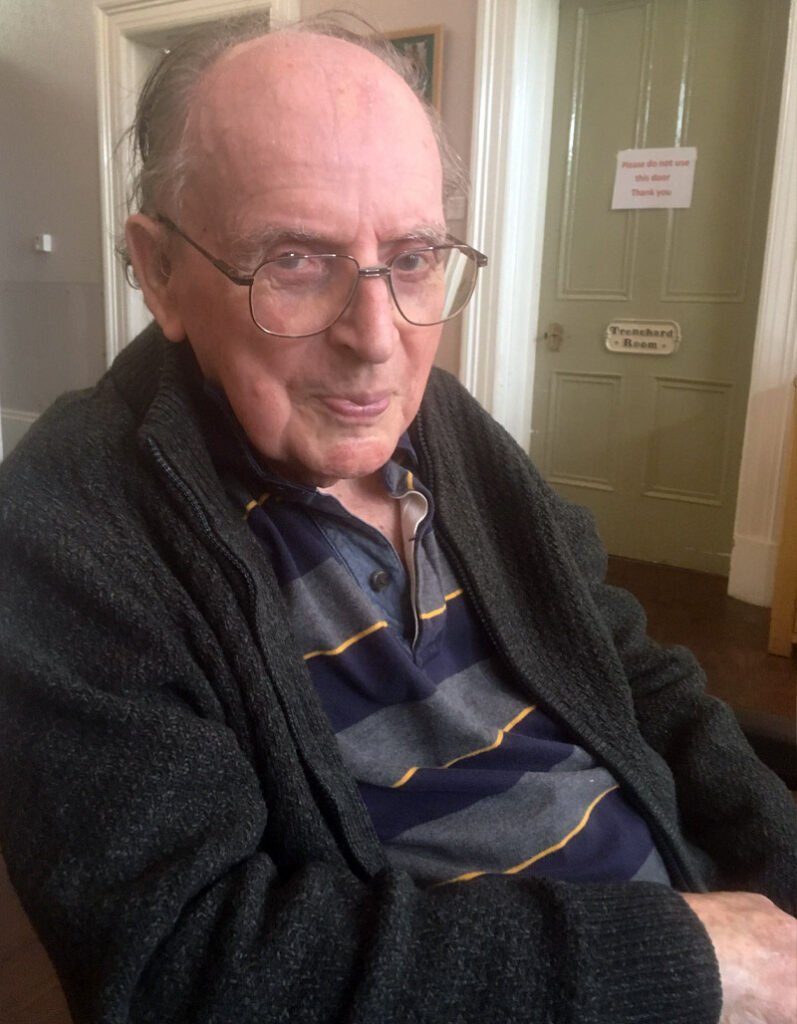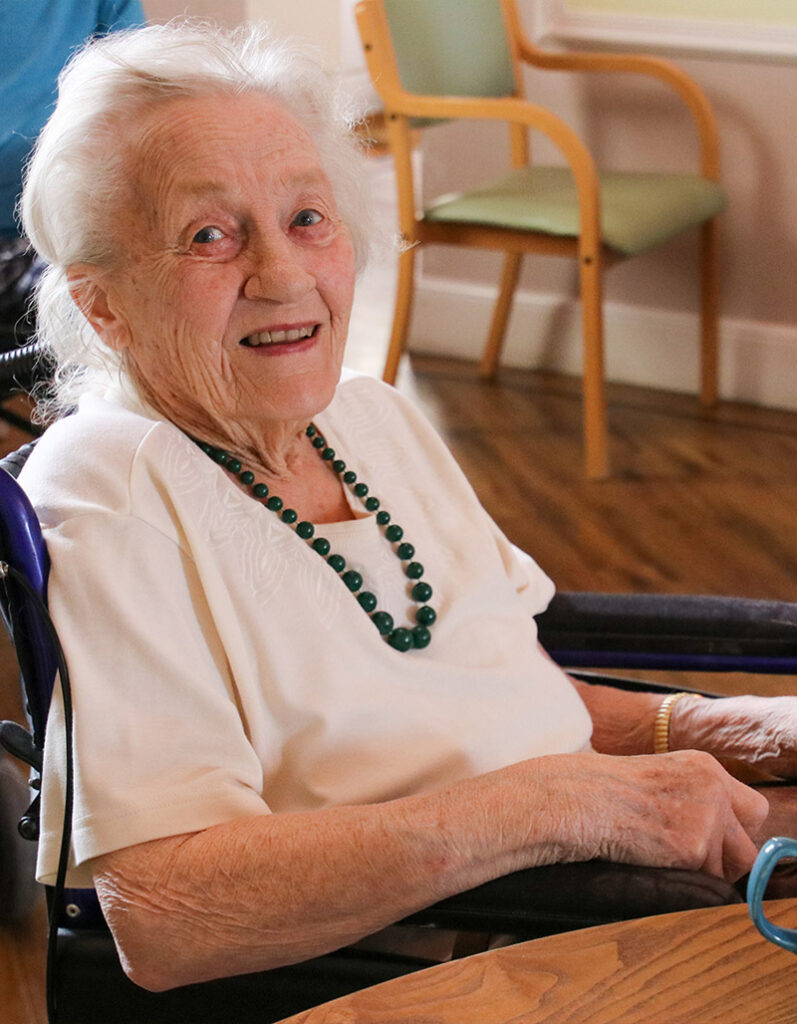LOCAL: Lilian Faithful Care residents share evocative WW2 memories
Remembrance Day has a special significance for many of the residents and day guests at the charity Lilian Faithfull Care. In the run up to this year’s commemorations, three residents at Faithfull House care home in Cheltenham share their evocative memories which brings history to life. Take a read of their stories…..
Irene Kettley, aged 94, lives at Faithfull House care home in Cheltenham, and was eleven when war broke out.
“I had just won a scholarship to Parliament Hill High School [in London] but then me and my older sister were evacuated to a village in Middlesex. The village school had just one classroom for children aged 5-14. When there weren’t any raids we came back to London.”
“Later I was re-evacuated on my own to North Devon to Barnstaple Girls Grammar School. My mum and two sisters followed on. At Grammar School I was given a grant of £15 a year which was given in three lots. I bought a bike for £5 and it was my pride and joy. I used to cycle to the seaside with a friend.”
“Before the war my dad’s factory made toys for Woolworths, and during the war they made tools for armaments. He also worked as a firewatcher in London.”
“My eldest sister, who was the beauty of the family, was one of the first to marry a GI. She moved to America and I didn’t see her for many years.”
“I say my O-levels, I did ok, but I’d missed well over a year of school due to the war.”
Irene got a job as a telephone operator and at the end of the war got a transfer back to London. “There was a feeling of relief at the end of the war, we thought rationing would end but of course it didn’t for a long time.”
In the following years Irene was promoted to work at the Houses of Parliament “It was a tiny little pot hole of a switchboard but I worked their very happily”.
“Looking back it was a different world.”
Brian Knight, who is currently at Faithfull House care home in Cheltenham for respite care, was six years old when the Second World War broke out.
“I remember the outbreak of war and I was interested in it all. I got a weekly magazine called ‘The War Illustrated’, which I kept for many years.”
“My home was in Plymouth. As a major Naval town it did come under attack. When the first war raid began I was at school and I ran home to check on my Grandmother, who was on her own and blind. The school was frantic.”
“In April 1941 there was a major blitz on Plymouth. I have never lost the image in my mind’s eye of seeing a house with flames coming through the windows.” Brian fled with his mother and grandmother to stay with family in Plympton. “This was in the middle of the night when the bombs were still falling. Most of our street was flattened. The war really came home to me then.”
“There was a Polish Naval unit based in Plymouth at the Aggie Weston’s hostel. On Monday evenings they showed American films and invited in children of the dockworkers, so I saw my first Frankenstein and my first Abbott and Costello films. It’s always left me with a warm spot for the Poles.”
“There was a large park near us and in 1944 it suddenly filled with tents, full of American Army personnel. Afterwards we knew it was the preparations for D-Day. I remember the garish American comics being handed around, and the fights between the black and white soldiers. I remember being very excited about the D-day landings and telling my grandfather that it was taking place. I’ve subsequently been to Normandy and seen some of the landing sites for myself and Omaha beach where the Americans took such heavy losses.”



During the war Brian took the 11plus and got a place at Grammar school. Before his A-levels he took the civil service exam and despite his headmaster saying “You won’t get that” he passed! After completing his 2 years National Service in the RAF, he worked for 38 years at GCHQ.
Margaret End remembers her childhood in the Gloucestershire village of Naunton through the Second World War.
“I remember during the war a lot of foreign troops were billeted in our area. The Americans were at Guiting Grange. My father organised whist drives and dances in the village and the troops came in coaches.”
“The German planes had a different sound to the British ones. They came over in droves. We had to make sure the house was in black out. We used to stand in the dark on the lawn and watch them go over and I remember mum saying ‘I wonder who is going to get it tonight’. There weren’t many shelters in Naunton. Our dining room was strengthened, extra wood to prop up the ceiling and we would sleep downstairs.” At the time Margaret was a pupil at Pates, “We did have underground shelters at Pates just in case.”
“My father was headmaster of Naunton school. A school from London was evacuated to our village along with two staff. The school wasn’t big enough for everyone so the village hall and another building were used to help accommodate them.”
Margaret was 14 when the war ended. “I can picture listening to the news on the radio in the living room at home and hearing Churchill announce ‘…and we are no longer at war with Germany.”
“After the war ended things remained the same, things were still short, petrol was still short and we still had rationing. You did what needs must.”
These memories, alongside the experiences of many residents and day guests, will give special resonance to commemorations being held in each of Lilian Faithfull Care charity’s homes and day hubs for Remembrance Day.

